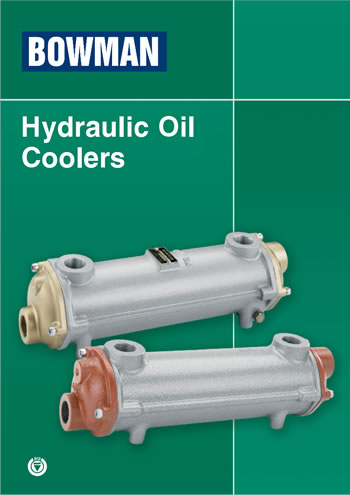Hydraulic systems are widely used in industrial applications due to their high efficiency and reliability. However, like any other system, hydraulic systems generate a significant amount of heat while in operation. If this heat is not dissipated properly, it can cause a number of problems such as reduced system performance, overheating, and premature component failure.

One of the most effective ways to manage heat in hydraulic systems is by using hydraulic oil coolers. These devices help to reduce the temperature of the hydraulic fluid, thereby preventing the system from overheating and improving its overall efficiency.
Hydraulic oil coolers are especially critical in high-pressure circuits where the fluid temperature can increase rapidly due to the high power output. They are also commonly used in transformer applications to keep the oil at a consistent temperature, which is critical for the proper functioning of the transformer.
There are several types of hydraulic oil coolers available on the market, including air-cooled, water-cooled, and oil-cooled variants. Each type has its own set of advantages and disadvantages, and the choice ultimately depends on the specific application and requirements.
Air-cooled hydraulic oil coolers are typically used in applications where the ambient air temperature is lower than the required oil temperature. They are relatively simple and easy to install, but may not be as effective in extremely hot environments.
Water-cooled hydraulic oil coolers, on the other hand, are more efficient than air-cooled variants and are better suited for high-temperature applications. However, they require a dedicated water supply and are more complex to install.
Oil-cooled hydraulic oil coolers are becoming increasingly popular due to their small size and high cooling capacity. They are more efficient than air-cooled variants and do not require a dedicated water supply, making them ideal for use in mobile equipment and other applications where space is limited.
Regardless of the type of hydraulic oil cooler used, it is important to ensure that the device is properly designed and installed to ensure optimal performance. This includes selecting the appropriate size and flow rate, ensuring proper mounting and positioning, and regularly maintaining the cooler to prevent clogging and other issues.
At Sri Sai Hydromacs Cooler, we understand the importance of hydraulic oil coolers in industrial applications and strive to provide the highest quality products to our clients. Our hydraulic oil coolers are made using high-grade raw materials and undergo rigorous testing to ensure superior performance and reliability.
In addition, we offer third-party inspection services to ensure that our products meet the highest standards of quality and safety. Our team of experienced professionals works closely with our clients to understand their unique requirements and provide customized solutions that best meet their needs.
In conclusion, hydraulic oil coolers play a critical role in managing heat in hydraulic systems and preventing overheating and premature component failure. By choosing high-quality products and ensuring proper installation and maintenance, industries can maximize the performance and longevity of their hydraulic systems and improve overall efficiency.